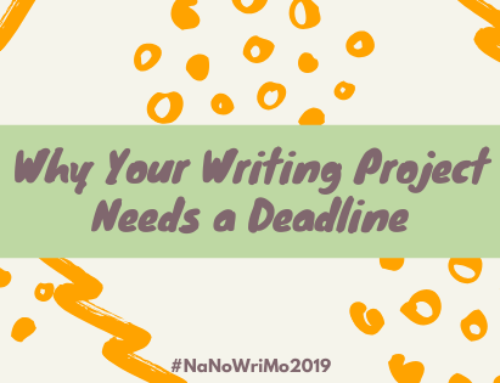
Writing a book is a rewarding and fulfilling experience, but it takes more time, effort, and dedication than writers may think. With the right approach, anyone can write a book and fulfill their dreams of becoming a published author (even you)! So, today we’re sharing nine steps to take when you start writing a book.
How to Write a Book
There are plenty of “tips” floating around on the internet and among writers about how to write a book, but when we get down to brass tacks, there are only a few specific steps you need to take—the most important being to write. Here are the nine, can’t skip steps to take to write a book.
1. Define Your Goals
Before you start writing, define your goals for your book. What do you want to achieve with it? Are you writing for fun, to inspire, to educate, or to make money? Your goals affect the way you approach writing and the content of your book. For example, if you’re writing to make money, you’ll need to research the book market and write in a popular genre. If you’re writing to educate, you may need to do extensive research and clearly and concisely present your ideas.
2. Choose Your Genre
The genre you choose has a big impact on the success of your book. Some genres, such as romance and mystery, are more popular than others and may make it easier to sell copies. It’s important, however, to choose a genre that you enjoy writing in and that suits your goals for the book.
3. Develop Your Idea
Once you’ve defined your goals and chosen your genre, you’ll need to develop your idea. This is where you’ll brainstorm the plot, themes of your book, characters, and setting. You may want to create an outline or a mind map to help organize your ideas.
4. Research
Depending on the genre and topic of your book, you may need to do research—even extensive research. This could involve reading books and articles, conducting interviews, or even traveling to different locations. Research will help you to create a realistic and accurate portrayal of your subject matter, as well as add depth and detail to your writing.
5. Create, and Stick to, a Writing Schedule
It’s important to create a writing schedule you know you can accomplish. This will help you make progress on your book and stay motivated. You may want to set aside a certain amount of time each day or week to write, or you may prefer to work on your book in larger chunks of time. Whatever works for you, make sure you prioritize your writing time and stay committed to your schedule.
6. Set Realistic Goals
When it comes to writing a book, you’ll need to set realistic goals. Be honest with yourself about how much time and energy you have to devote to your writing, and how long it will realistically take you to finish writing. Don’t set goals that are too ambitious or that you’re unlikely to achieve. Instead, set small, achievable goals that will help you make steady progress on your book.
7. Write
When it comes down to it, the most important step to writing a book is … well, writing. After all the goal setting, organizing, researching, and schedule planning, you have to get to the root of the project and write. A writer is successful in putting words on paper to craft a manuscript; a planner is successful at planning to write a book.
8. Stay Motivated
Writing a book can be a long process, so it’s important to stay motivated. We recommend setting rewards for yourself when you reach specific milestones or having someone keep you accountable. Choose whatever works best for you.
9. Get Feedback
Getting feedback on your writing is an essential part of the writing process. The feedback process can be done in several steps, including sharing your work with a writing group, asking friends and family members to read your work, and hiring a professional editor. Feedback will help you identify areas where you can improve your writing and provide insights into how your readers may respond to your book.
Conclusion
Remember to define your goals, choose your genre, develop your idea, research your subject matter, create a writing schedule, set realistic goals, get feedback, and stay motivated. With these steps in mind, you can achieve the status of Author.
Join us on Instagram and Facebook for writing tips, publishing advice, creative inspiration, and more!













Leave A Comment